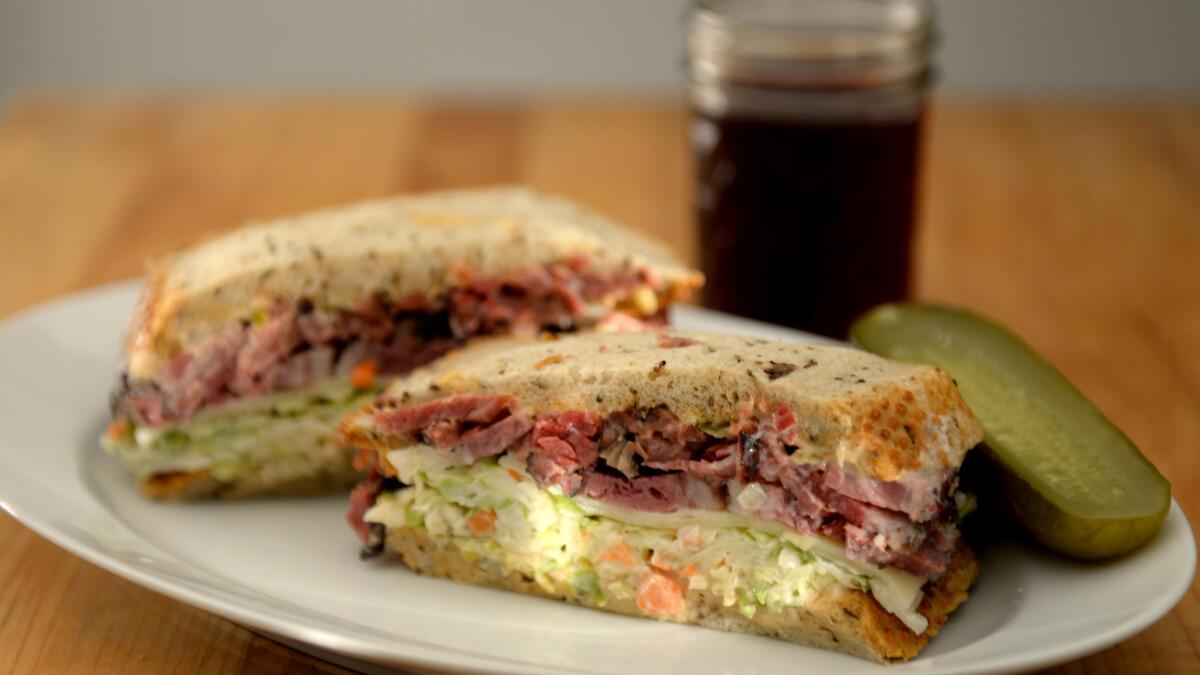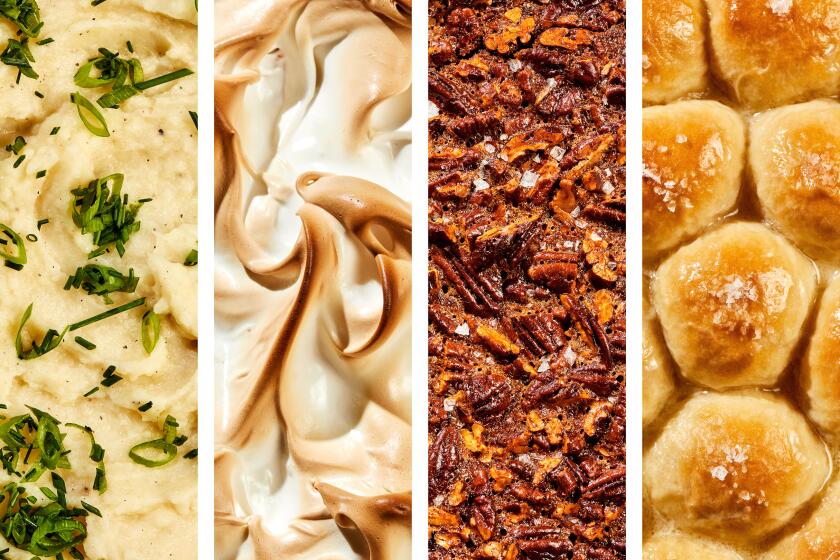What to drink with Langer’s No. 19 pastrami sandwich? Try Australian Grenache

Let’s face it: Pairing wine with food can be a fairly fussy business. The more time you spend thinking about it, the more absurd it all seems – fretting over that fleeting moment when two ephemeral sensations go bump in your mouth, lining up flavors, acids, weights and textures like so many planets in search of cosmic alignment, while the real world seems forever in retrograde. Then again, a good pairing can be not just memorable, but something that lingers ineffably, even as it eludes your ability to grasp it. The best directed pairings can be deadly in their precision, pinpointing not just flavors and sensations but where, on the tongue, to expect them, or they can break down each gustatory moment like a stop-action photographer, a play by play for your palate.
I was thinking about this recently as I bit into a Langer’s No. 19 pastrami sandwich, following it with a sip of old vine Grenache from Australia’s Barossa Valley. It was one of the great food and wine pairings I’ve enjoyed in the last year.
The No. 19: hand-cut pastrami, cole slaw, Russian dressing, Swiss cheese, double-baked rye bread. Pastrami is ubiquitous in Los Angeles, but when you take a single bite of Langer’s No. 19, developed by the family in the ‘60s, it just makes you shake your head and sigh. I would describe it, but the immortal Nora Ephron already has, in an early New Yorker Food Issue (2002), so there’s really no point. It is, she wrote, “an exquisite combination of textures and tastes. It’s soft but crispy, tender but chewy, peppery but sour, smoky but tangy. It’s a symphony orchestra, different instruments brought together to play a perfect chord. It is, in short, a work of art.”
The Grenache (Kalleske’s, from vines planted in 1935) was hardly symphonic, but was completely satisfying, in part because its texture was broad, warm, open-armed, enveloping, it could get around all those contradictory flavors that make the Langer’s No. 19 such an iconic sandwich with effortless aplomb, clearing my palate for the next combinatory bite.
Australia’s a big country, and there’s more than one style of Grenache, but many of the wines do share some common elements: the best of them come from the warmest regions, where the fruit reaches a luxurious juicy raspberry ripeness. Many of the vineyards are old — older than a century in some instances, which lends concentration and character to the dark red fruit, making it more full-throated, firmer and more intense — all the while remaining generous and approachable.
Here are a number found in both Los Angeles retail shops and restaurants:
2014 Yalumba Barossa Valley Old Bush Vine Grenache is fresh and fragrant, with a hint of smoke and juicy, mouthwatering strawberry flavor. About $18 at K&L, Wine Country, and the Southern Hemisphere Wine Center in Huntington Beach.
2012 d’Arenberg McLaren Vale The Derelict Grenache, drawn from ancient “derelict” vines which Chester Osborn revived in his home district, is a firm clean red with plush raspberry flavors and invigorating grip. They are the region’s Grenache experts, making no less than 15 different bottlings. About $26 at the Wine House.
2013 Langmeil Barossa Valley Fifth Wave Grenache is clean and smoky with dark cherry flavors and grippy mouth-filling tannins. Langmeil has the oldest Shiraz vines in Australia, and its Grenache is also from a resurrected ancient “derelict” vineyard in the Barossa. About $39 at K&L.
2014 Kalleske Barossa Old Vines Grenache has a subtle minty top note adorning a juicy core of red raspberry fruit, with firm chewy tannins and a surprising density to the finish. About $45 at K&L and Southern Hemisphere.
2010 Cirillo Barossa Valley 1850 Grenache is from vines planted in that year, making this vineyard (so far as we know) the oldest Grenache vineyard on the planet. It’s wildly concentrated and powerful, while remaining lifted, red fruited, open-armed. At area restaurants such as Redbird, Otium, Spago and Augustine, as well as Wine Exchange, about $75.
More to Read
Eat your way across L.A.
Get our weekly Tasting Notes newsletter for reviews, news and more.
You may occasionally receive promotional content from the Los Angeles Times.










